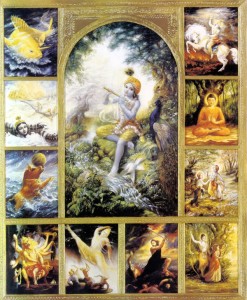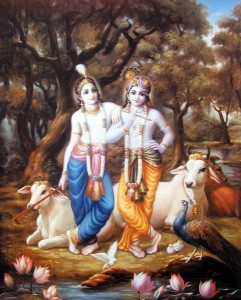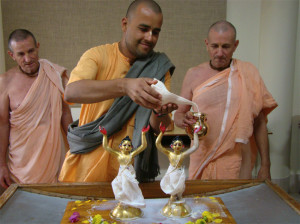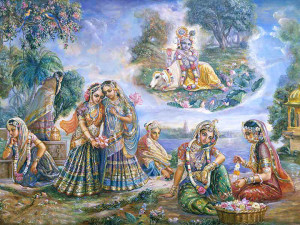SB-1.3.1-2: Three Vishnus
SB-1.3.1-2: Sūta said: In the beginning of the creation, the Lord first expanded Himself in the universal form of the puruṣa incarnation and manifested all the ingredients for the material creation. And thus at first there was the creation of the sixteen principles of material action. This was for the purpose of creating the material universes.
Those fortunate living entities who catch the truth and surrender unto the lotus feet of Vāsudeva after many, many births in the material world join the eternally liberated souls and thus are allowed to enter into the kingdom of Godhead. After this, such fortunate living entities need not come again within the occasional material creation. But those who cannot catch the constitutional truth are again merged into the mahat-tattva at the time of the annihilation of the material creation.


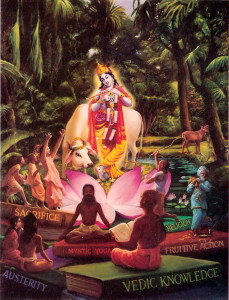 SB 1.2.28-29
SB 1.2.28-29